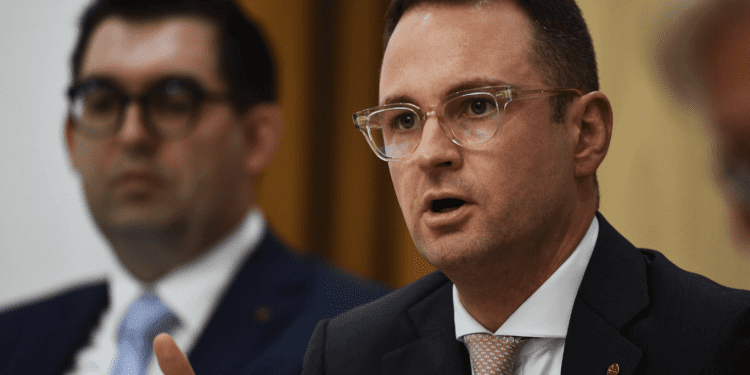Senator Andrew Bragg said businesses claim to be regulated even though Australia has no legislation controlling cryptocurrency.
ASIC’s Lack of Regulatory Checks
Multiple inquiries have been made to Australia’s financial services authority regarding using a cryptocurrency exchange’s financial services license, which does not cover cryptocurrencies. The bankrupt bitcoin exchange FTX obtained an Australian Financial Services License (AFSL) by purchasing a company that already held one. Still, the Australian Securities and Investment Commission (ASIC) did not check whether it was eligible to have the license.
Longo & Bragg’s Concerns
In discussions with ASIC chairman Joseph Longo this year, Liberal senator Andrew Bragg expressed reservations about Crypto.com’s claims for its AFSL. After receiving a complaint from a constituent about the platform’s lack of customer assistance in July, Bragg asked Asic what Crypto.com could do with its license.
Bragg asked whether Asic could confirm that Crypto.com “is potentially giving the impression that a product or service it delivers is a regulated crypto product when it could not be.”
According to product disclosure statements on Crypto.com’s website, “The financial services are tied to Crypto.com Pay. It does not appear that Crypto.com is operating under an improper AFS License authorization,” Longo added.
According to a company spokesperson, most of the nations where Crypto.com conducts business have standard licensing procedures. However, because of the Australian company’s prior relationship with Visa, Crypto.com launched its Visa card in Australia after purchasing The Card Group.
The spokesperson said that “while the acquisition path allows for improved speed to market [and] does not in any way lessen the weight of diligence on our business either during or post-acquisition,”
Bragg wanted Asic to intervene and ensure that cryptocurrency businesses did not mislead customers about what the license covered. “I am concerned about businesses representing themselves as regulated cryptocurrency enterprises when no such licensing structure is in place. Asic must make sure companies don’t act in this area misleadingly or fraudulently,” he added.
Legality of Cryptocurrencies
Dr. Dimitrios Salampasis, the director of Swinburne’s master of financial technologies, claimed that “the ‘boundaries are rather muddy’ and that crypto businesses holding an AFSL may deceive investors and customers. Obtaining an AFSL does not immediately make cryptocurrencies legal.”
Since there is no such regulation in Australia, organizations that deal in cryptocurrencies and digital assets are not obliged to hold an Australian Financial Services License. Because it misleads investors and customers into believing they are protected and inflates their expectations, this can be highly risky.
Authorities’ Response
According to the variety of goods and services each entity offers, the regulator “supervises a fairly broad spectrum of companies, some of which may have cryptocurrency exchange activities in addition to their financial services businesses,” an ASIC representative stated. Although ASIC does not supervise cryptocurrency exchange operations, the regulator knows that some of its licensees offer cryptocurrency-related services.
“We have considered how this may affect their ability to uphold the terms of their license. We advised brokers not to sell crypto assets and other high-risk products in August. Licensed businesses that run exchanges for digital currencies may have also been inspected as part of ASIC’s continuing supervisory procedures,” the spokesperson said.
Necessity of Regulation
Salampasis advised cryptocurrency exchanges to use caution and transparency while describing the scope of their licenses. He asserted the necessity of regulation. Salampasis contends that the longer the process of creating an equal, appropriate, and stringent regulatory framework is postponed, the more severe and pervasive the issues will become, and the more consumers will be deceived and confused.
The Albanese government abandoned the consultation in favor of a token-mapping assessment, and it is anticipated that in 2023 the government will present legislation to control cryptocurrency markets.
Conclusion
The Senate voted Wednesday to direct Jones to deliver briefings regarding the Treasury consultation and policy alternatives, draft legislation, and submit consultation submissions by Tuesday of the following week. Senators from Labor rejected the measure, but the Coalition and the crossbench supported it.














